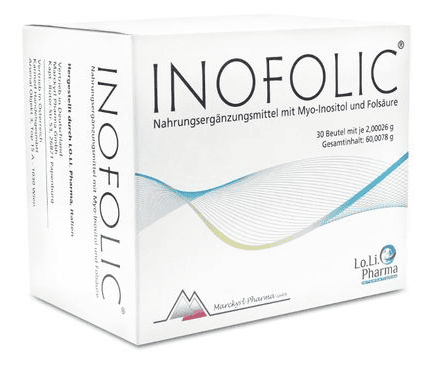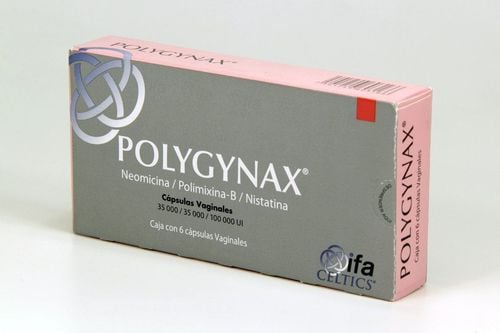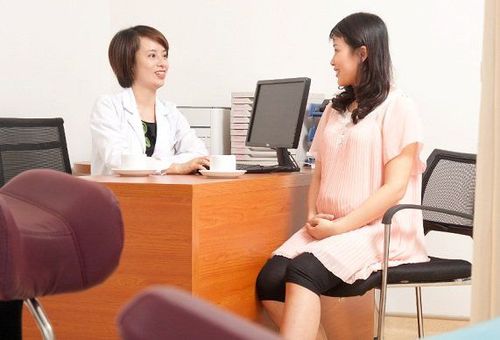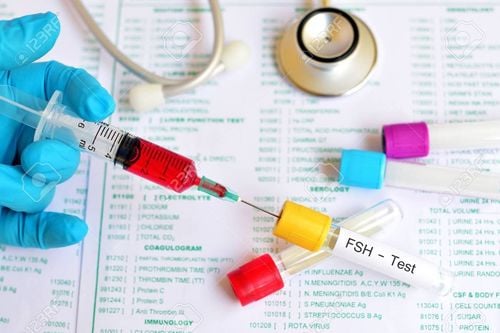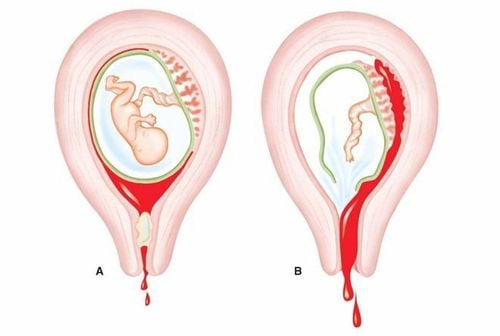This is an automatically translated article.
The article was professionally consulted by Doctor Pham Thi Yen - Department of Obstetrics and Gynecology - Vinmec Hai Phong International General Hospital.Polycystic ovary syndrome (PCOS) is a common gynecological disease in women, especially women of reproductive age. If not examined and treated promptly, the patient can become infertile. So how does polycystic ovaries affect a woman's fertility? Let's find out in the article below!
1. What is polycystic ovary?
Polycystic ovary syndrome is a syndrome caused by hormone imbalance. Women with polycystic ovary syndrome have an abnormal increase in the level of Androgen (male hormone) in the female body, these substances will disrupt the development of ovarian follicles from which many cysts appear in the ovaries. Small (from 6 to 10 follicles < 10mm seen on ultrasound images of the ovaries) due to the fact that the follicles cannot develop, the eggs cannot mature and there is no ovulation. When a woman has this syndrome, the ovaries will have a thick shell that makes the follicles unable to develop, so every month the egg cannot break that shell, ovulation does not occur, leading to the inability to conceive. .Trắc nghiệm: Bạn có hiểu đúng về dấu hiệu mang thai sớm?
Các dấu hiệu mang thai sớm không phải chỉ mỗi trễ kinh mà còn có rất nhiều dấu hiệu khác như xuất huyết âm đạo, ngực căng tức,… Điểm xem bạn biết được bao nhiêu dấu hiệu mang thai sớm thông qua bài trắc nghiệm này nhé!
2. Causes of Polycystic Ovarian Syndrome
The exact cause of PCOS is still unknown, but the following factors may play a role:Genetic factors: If your mother or sister had PCOS, you may also have this syndrome. Researchers are also looking into the possibility that genetic mutations are linked to polycystic ovary syndrome. Excess insulin: Insulin is a hormone produced in the cells of the pancreas that allows the use of sugar (glucose), the body's main source of energy. If there is insulin resistance, the ability to use insulin effectively is impaired and the pancreas secretes more insulin to metabolize to the cells. Excess insulin is thought to boost the production of androgens by the ovaries. An increase in Androgen production can interfere with follicle growth, reducing the ovaries' ability to ovulate. Diet: too much starch can also be the cause of polycystic ovary syndrome.
3. Signs of polycystic ovary
Irregular or irregular menstrual cycle (short menstrual cycle < 25 days or every 2-3 months or every few years). Weight gain, obesity due to sugar (glucose) not being converted into cells will convert into fat that accumulates, especially in the abdomen. Feeling of fullness and discomfort in the abdomen - back - pelvis: This is also a common symptom of polycystic ovaries. Patients may experience dull or sharp pain ranging from mild to severe like menstruation and often feel discomfort in the pelvis, abdomen or lower back.

Infertility due to not ovulating. Diabetes (mainly type 2 diabetes) is caused by a disorder in the regulation of the hormone estrogen and insulin in the body. High blood pressure and difficulty regulating blood pressure High blood fats, especially bad fats (LDL), lead to an increased risk of heart disease and stroke
4. Can polycystic ovary have children?
Many patients worry that polycystic ovary syndrome will affect reproductive function, even leading to infertility. So can polycystic ovary have children?You should not be too worried because polycystic ovary is also a common gynecological disease in women, so you can still get pregnant naturally. In fact, many studies have shown that not all cases of polycystic ovary syndrome can not become pregnant, there are still cases of pregnancy if treated promptly. However, if your condition has been around for a long time, the risk of infertility is higher.
With the development of medicine today, people with PCOS have been treated in many different ways to suit each person's needs. Treatment for polycystic ovary syndrome is usually aimed at regulating menstruation and treating pregnancy.
5. Treatment of polycystic ovaries
The following are methods to treat PCOS in time so as not to affect your fertility:Adjust lifestyle habits and lose weight effectively: Follow a high-fiber diet , low in starch, sugar, rich in vegetable protein, rich in vitamins and iron from plants and exercise regularly, limit staying up late, avoid stress and anxiety... limit the risk of cardiovascular diseases, diabetes, high blood pressure... Use drugs to stimulate ovulation. If you're trying to get pregnant, you may need a medication to stimulate ovulation. There are many different types of medications, from oral to injectable. Your doctor will review each patient's case to determine which medication is right for you. Surgery: Laparoscopic ovarian surgery is one of the treatment options for PCOS. Your doctor will perform surgery by laparotomy to create small holes in the ovaries (ovarian point cauterization) to reduce male hormone levels and enhance ovulation. The effects of this method are temporary, but about 50% of women become pregnant within a year of surgery. IVF: If no other treatment is right for you, IVF is considered the best option. To perform this method, the doctor will first collect eggs and sperm to conduct insemination in a laboratory. The embryo is then inserted into the woman's uterus so that it can develop into a fetus. Pregnancy rates depend on a woman's age and fertility.
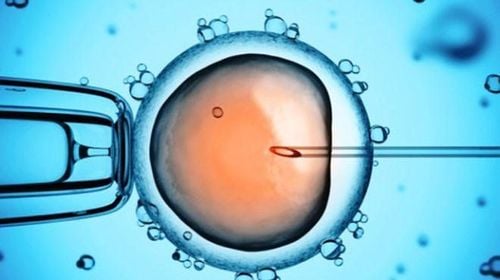
If there is a need for consultation and examination at the Hospitals of the National Health System, please book an appointment on the website to be served.
Please dial HOTLINE for more information or register for an appointment HERE. Download MyVinmec app to make appointments faster and to manage your bookings easily.





